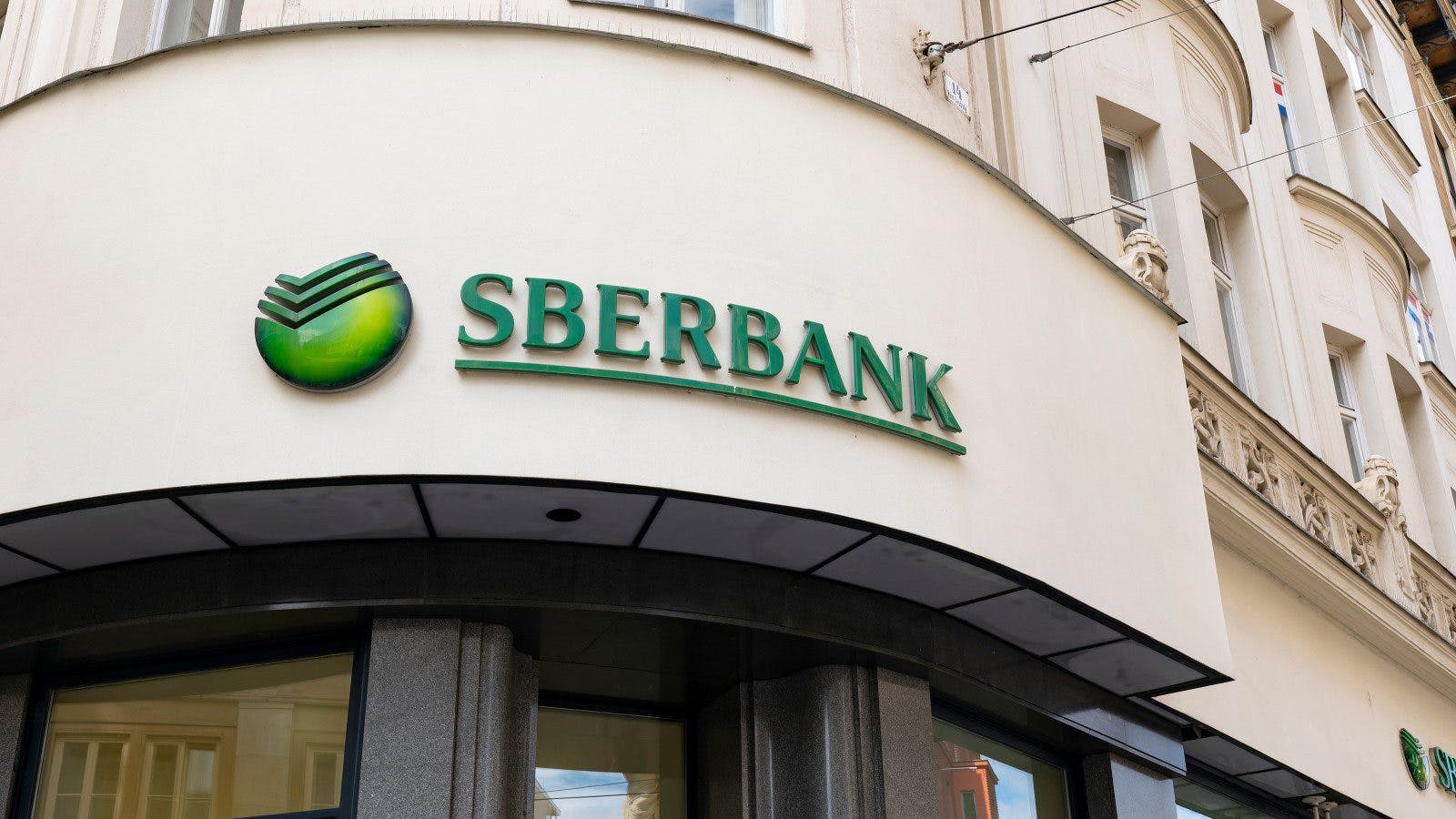Russia’s Sberbank Receives License To Issue Digital Assets
The lender said it had been approved for a license that would allow companies to begin issuing digital assets via its DLT platform

The Russian Sberbank bank in Brno, Czech Republic. Credit: Shutterstock
- Russia’s central bank has granted the country’s biggest lender a license to begin issuing digital assets
- Sberbank is under duress by US sanctions over the ongoing Ukraine-Russia conflict
Russia’s top lender has been granted a license by the country’s central bank to begin issuing digital assets following US economic sanctions that witnessed a seismic drop in the institution’s value earlier in the month.
Sberbank has been included in the list of information system operators, or approved companies, issuing digital financial assets, the lender said in a statement on Thursday.
The decree comes amid US sanctions against Russian financial institutions, businesses and individuals over the country’s invasion of Ukraine, which first commenced Feb. 24. Sberbank, which is state owned, is currently sanctioned by the US and European Union.
Those assets issued on the bank’s digital platform will be recorded and circulated via a distributed ledger technology system ensuring “data security” and data immutability, it said.
Companies will be able to issue their own digital assets, providing they prove they have the cash requirements. Companies will also be allowed to use digital assets issued through the bank’s information system, which will position them to invest their currently idle funds to generate income, Sberbank said.
“Companies will be able to make their first transaction on our blockchain platform one month from now,” Sergey Popov, director of the Transaction Business Division, said in the statement.
“We are just starting our work with digital assets, realizing that further development requires adaptation of the current regulatory framework. To do that, we are ready to work closely with the regulator and executive bodies.“
Sberbank lost 95% of its value on the London stock exchange at the beginning of the month. Other London-listed stocks, including Lukoil, Novatek and Rosneft, also suffered significant hits due to sanctions.
The lender has the largest market share of savings deposits in Russia and is the country’s primary creditor issuer. It has operations in several European nations, marking it as the largest bank across the continent’s eastern borders.
The question whether, or to what extent, Russian government-affiliated entities could use crypto to circumvent Western sanctions is a hot topic in Washington, with the Senate holding a hearing on the matter on Thursday. During that hearing, a bipartisan group of senators introduced new legislation aimed at ensuring Russia remains largely cut off from global financial infrastructure.
Get the news in your inbox. Explore Blockworks newsletters:
- The Breakdown: Decoding crypto and the markets. Daily.
- 0xResearch: Alpha in your inbox. Think like an analyst.






